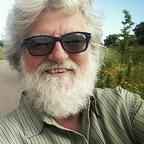A Good Death and How to Have One With an Advance Care Plan
If you’ve ever attended a funeral reception, you’ll have often heard someone remark, “She [or he or they] led a good life.” By “good life”, we usually mean that the person lived well, served her or his community, and was generally well-liked by everyone. But what about a “good death”?
Is it possible to have a “good death”? Can we prepare for that eventuality? Well, yes and no.
We can’t predict the timing of our death nor can we predict the cause of our death (at least not until relatively close to the end when we may have been given a terminal diagnosis by a doctor). However, we can make plans that will lessen the anxiety for both the dying person and his or her loved ones. We call this “Advance Care Planning” or ACP.
Advance Care Planning has become more popular as we are increasingly invited to participate in the decisions that impact our health. In short, it is a process of reflection and communication in which you reflect on your values and wishes regarding the sort of medical and personal care you would like, or not like, at the end of your life, and communicate those reflections and wishes to your loved ones. Such a plan is important in the event that you cannot speak for yourself.
At the core of an Advance Care Plan is the Advance Directive and your Substitute Decision Maker (SDM). An Advance Directive is a written document in which you outline your values, beliefs, and wishes for future medical treatment and personal care. For example, you may not want to be kept artificially alive if there’s no possibility of recovery or quality of life. You may refuse resuscitation in a similar circumstance. Given a short time to live, would you rather spend it undergoing invasive treatment in a hospital or spend it with loved ones in a hospice or at home where pain management and comfort are primary concerns? These are decisions that are best made in consultation with your loved ones and your medical professionals.
Not only can the Advance Directive be shared with your loved ones but it is important that you share it with your doctor or consultant who can help answer your questions about medical treatment and care. Advance Care Planning is also a good time to think about choosing your Substitute Decision Maker (SDM) by creating a Power-of-Attorney for Personal Care. This is a person you choose to speak for you when you are unable to. Knowing your wishes is important to the SDM so that they can ensure that you receive the type of care and treatment you want or do not want.
Especially helpful in preparing your Advance Directive is the trained and accredited End-of-Life (EoL) Planning Facilitator. While he or she will not necessarily be a legal professional, the EoL Facilitator will have experience, the knowledge, and the resources to help you prepare your Advance Directive. While they won’t make your decisions for you, they will support you through the process. This support can be indispensable for a number of reasons.
Firstly, many people report finding it difficult to open a conversation with their loved ones about one’s mortality. An EoL Facilitator can broach the subject with sensitivity and compassion and be there, if necessary, to support you during that conversation.
Secondly, having an EoL Facilitator there to listen to you with compassion and non-judgement can help you clarify your values, beliefs, and wishes.
And thirdly, an EoL Facilitator can provide you with the Advance Directive paperwork and other resources to help you make informed decisions about your health care and treatment as well as choosing your Substitute Decision Maker (SDM).
End-of-Life Planning Facilitators usually work in person, by telephone, or via Zoom or other online platforms. Fees vary but are affordable and an excellent investment. They will help you prepare your Advance Directive as well as understand your choices for your will and powers-of-attorney for health and personal care and for finances and property. They can also help you sort out your choices for funeral and body disposal as well as memorial and legacy celebrations. Best of all, an End-of-Life Planning Facilitator can make creating an end-of-life plan as easy and exciting as creating a birth plan so that you can get on with living your life to the full, knowing that your affairs are in order. Imagine the peace of mind that will bring you and your loved ones.
Information about Advance Care Planning is available from such sites as Advance Care Planning (Canada), the National Institute on Aging (U.S.), and Compassion in Dying (U.K.). However, should you wish a more personal experience through the process of completing your Advance Directive and other end-of-life matters, I recommend seeking a trained and accredited End-of-Life Planning Facilitator from the following:
Before I Go Solutions www.beforeigosolutions.com One of the UK’s best centres for trained EoL Facilitators and EoL training courses. Check their website to see if there’s an End-of-Life Planning Facilitator in your area. They have trained facilitators from the UK, Canada, the U.S., and other locations.
Author:
Michael Williams https://www.myendoflifeplan.ca Michael Williams is accredited and licensed as a Before I Go Method End-of-Life Planning Facilitator. He is also the Head Facilitator for Before I Go Solutions. Michael serves clients in Canada, the U.S., and the U.K. Sessions via Zoom. He is currently based in Hamilton, Ontario, Canada.
